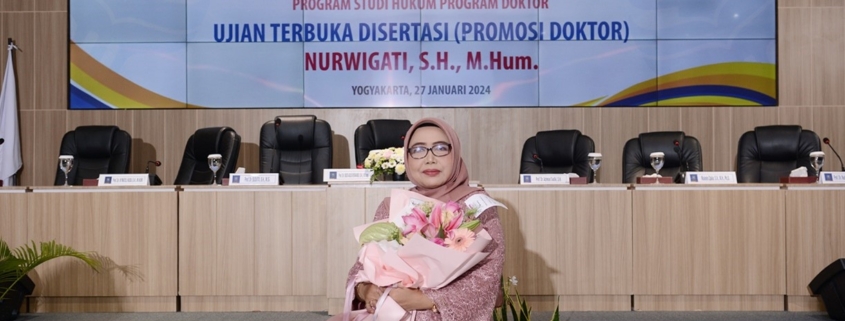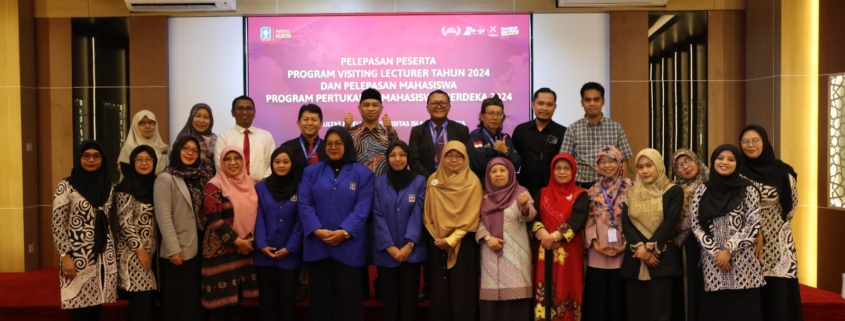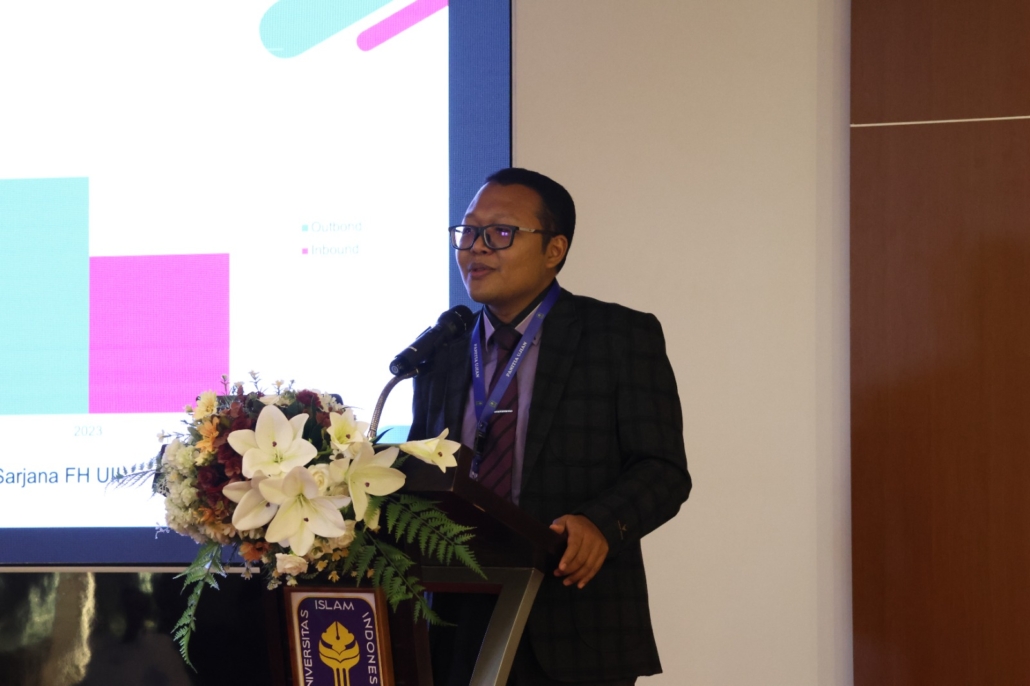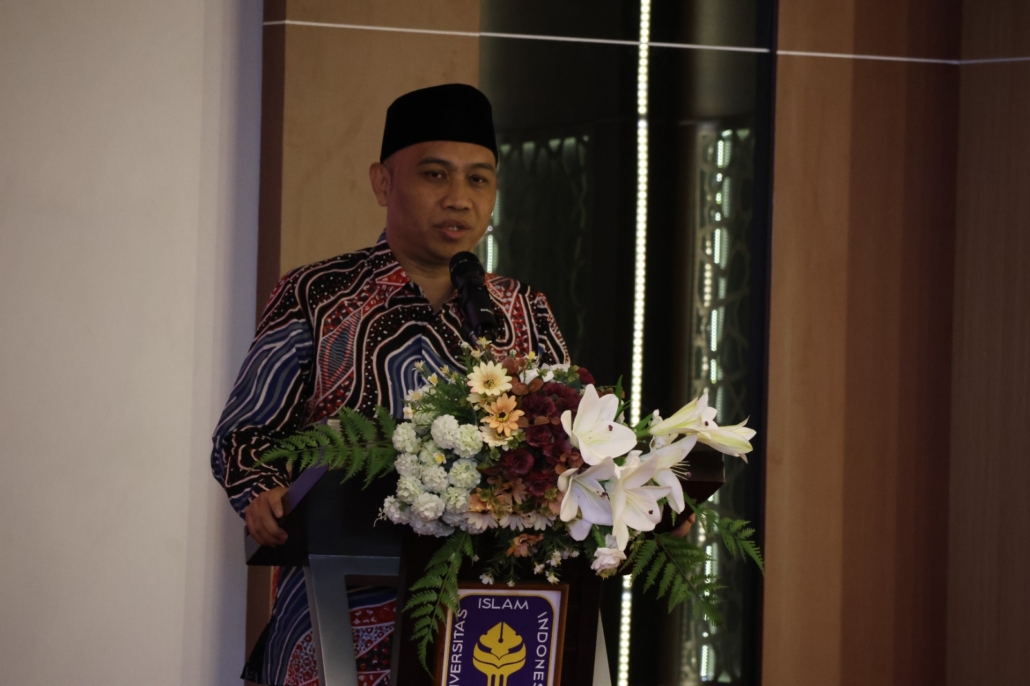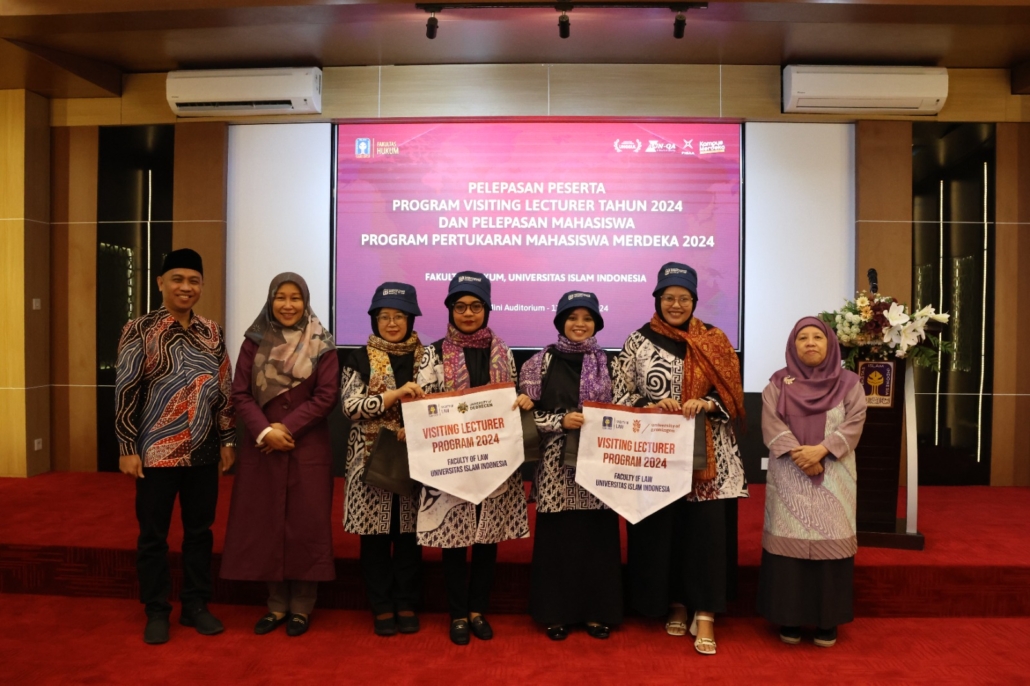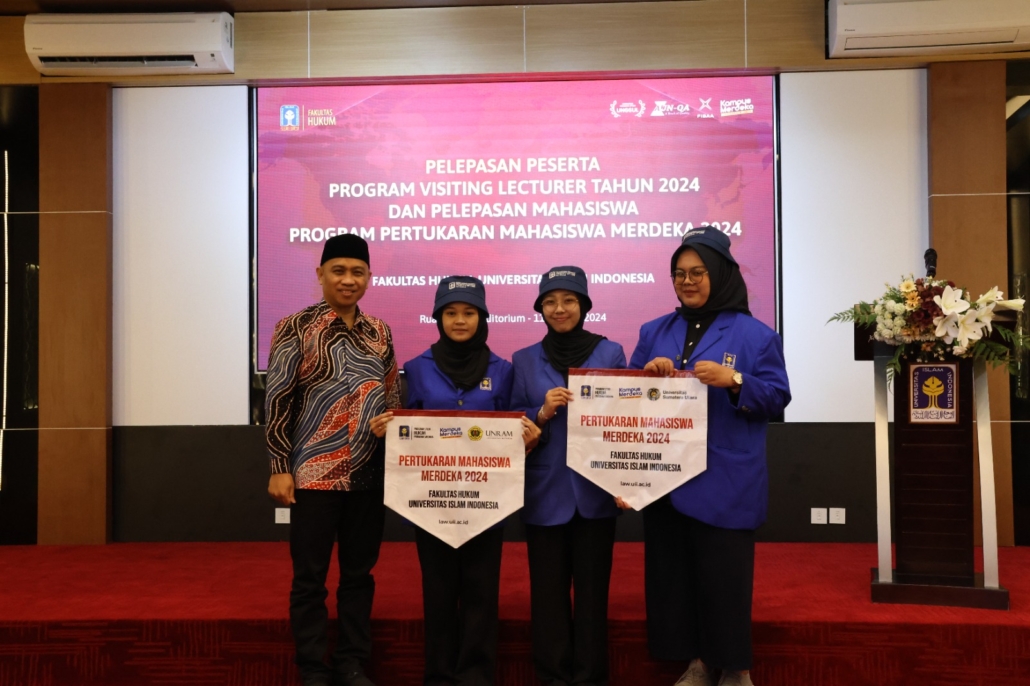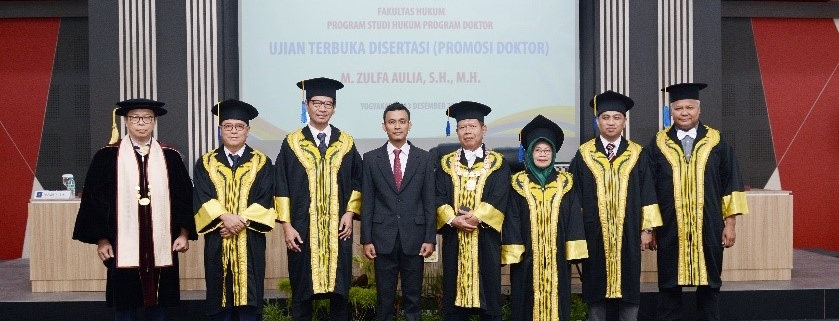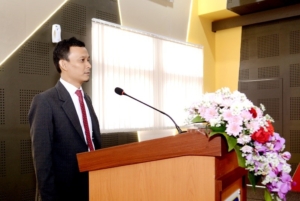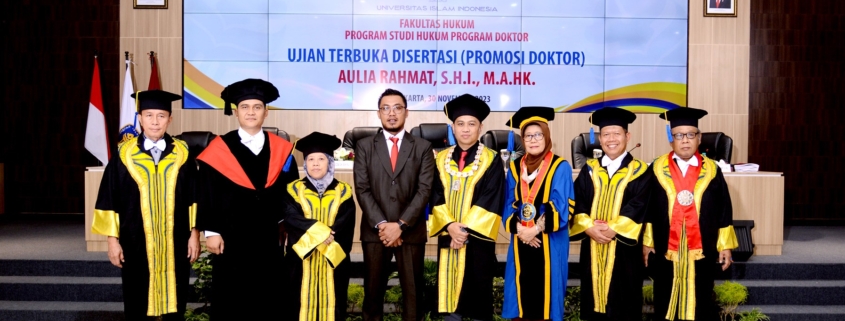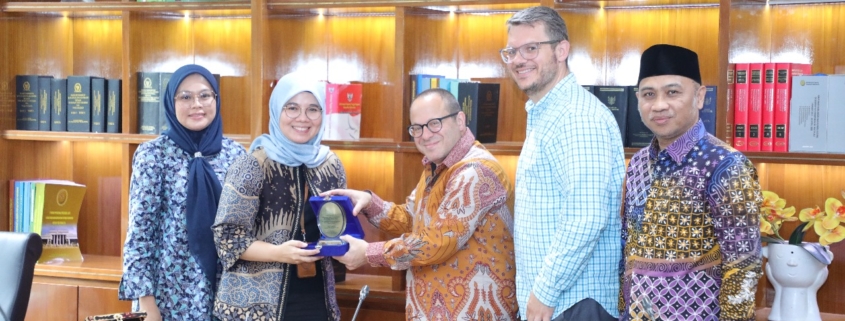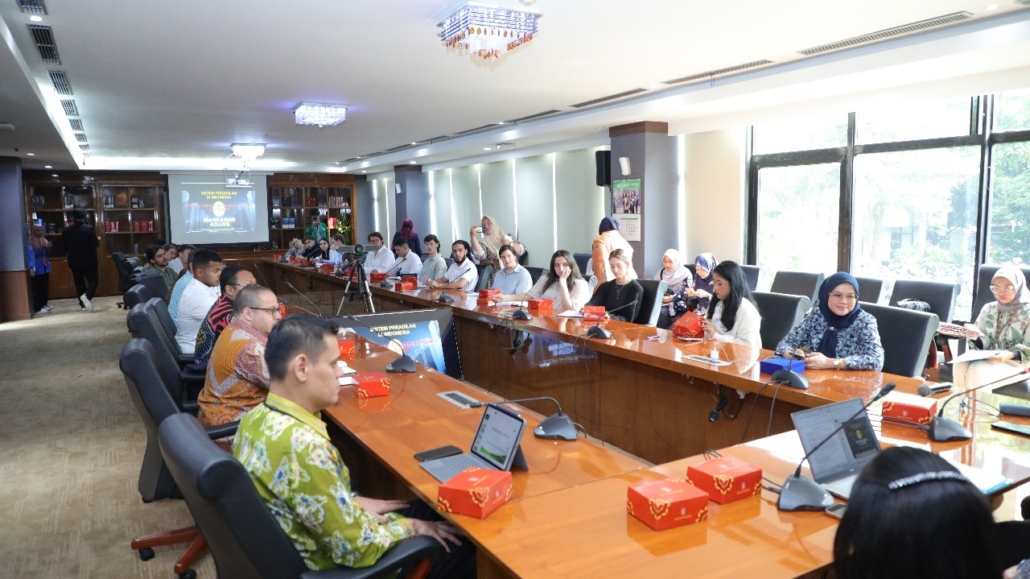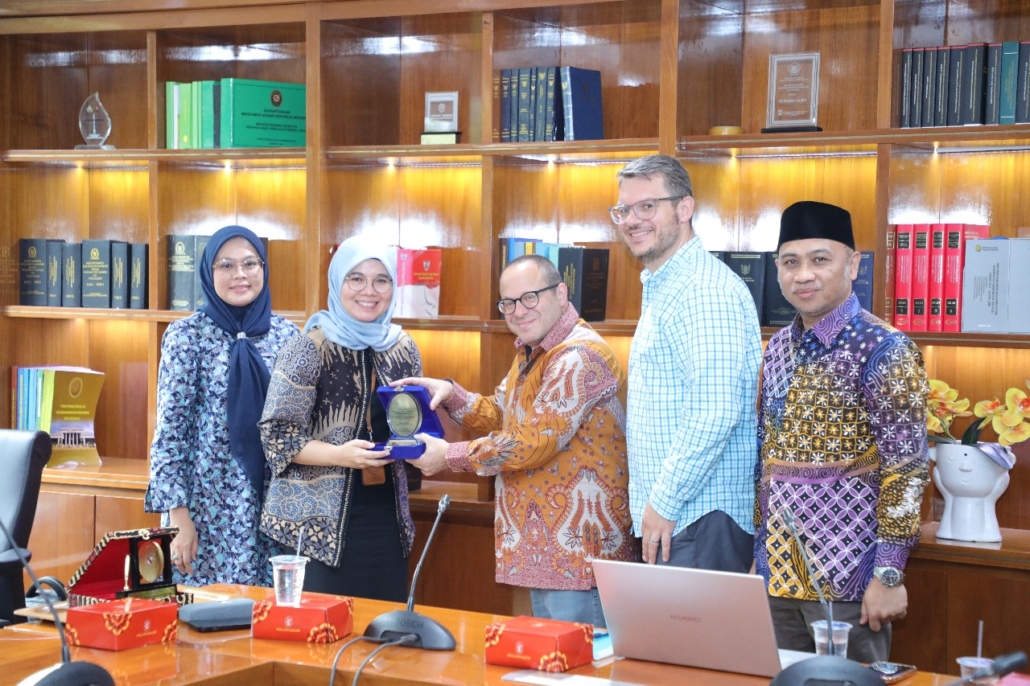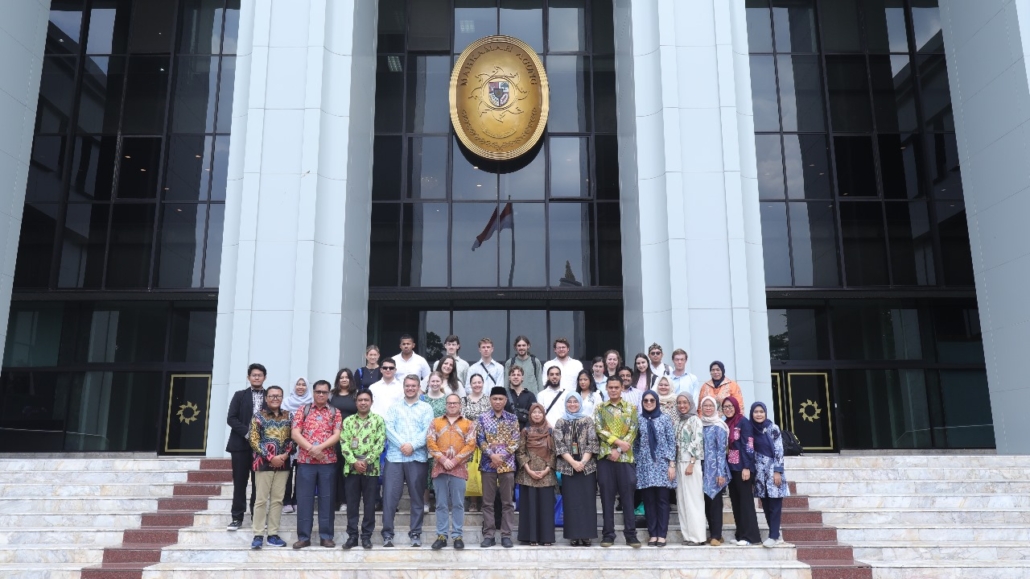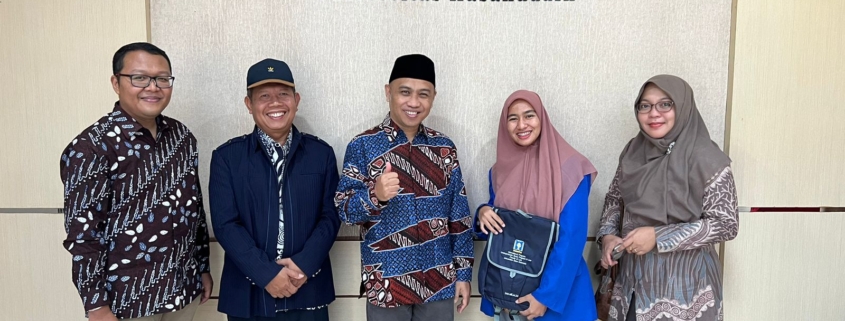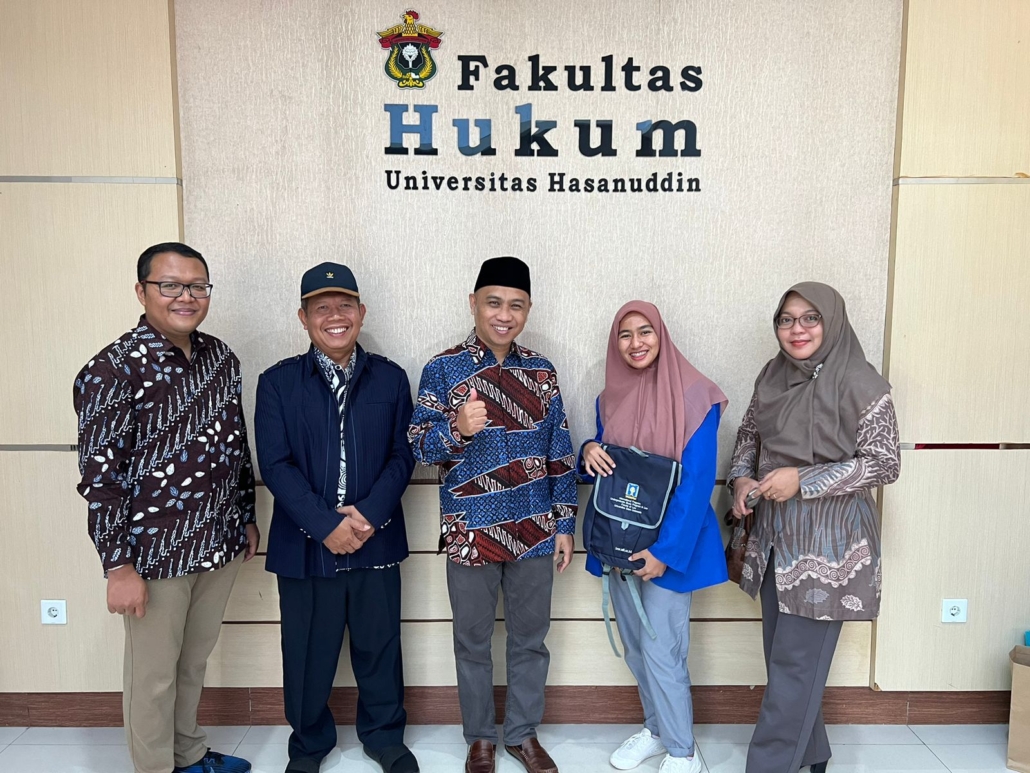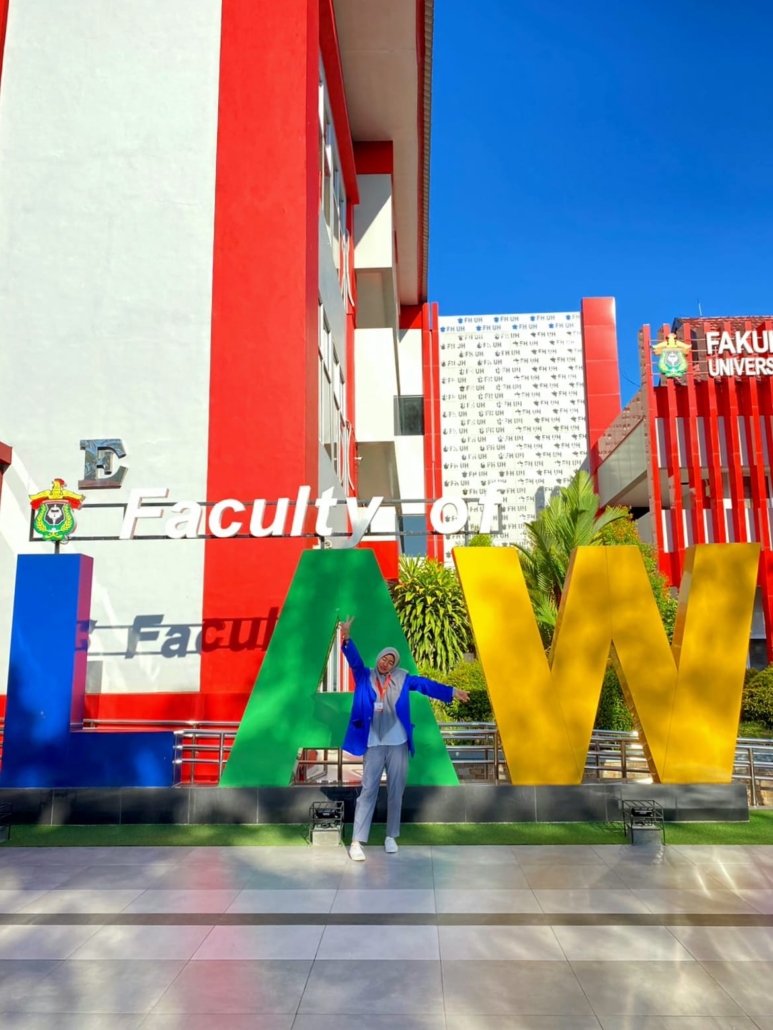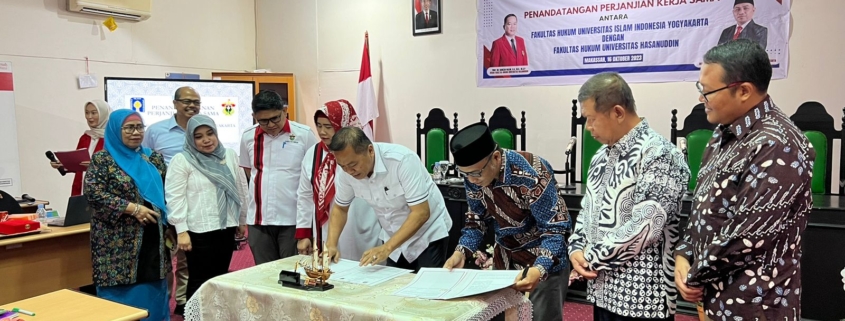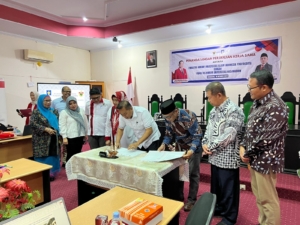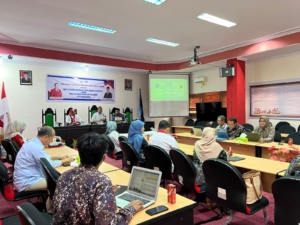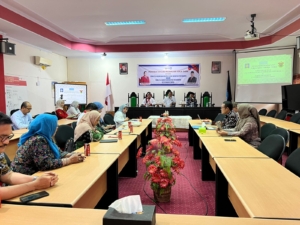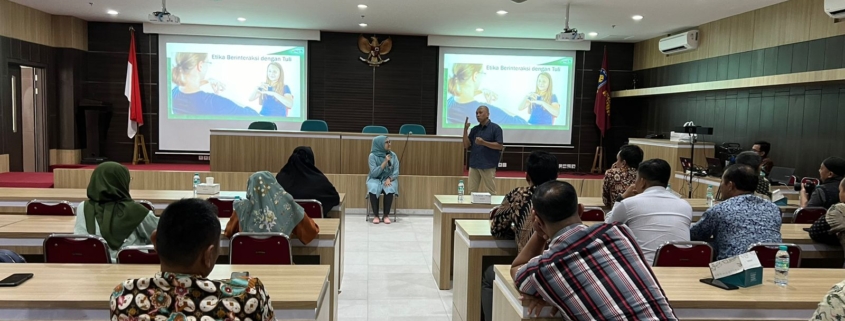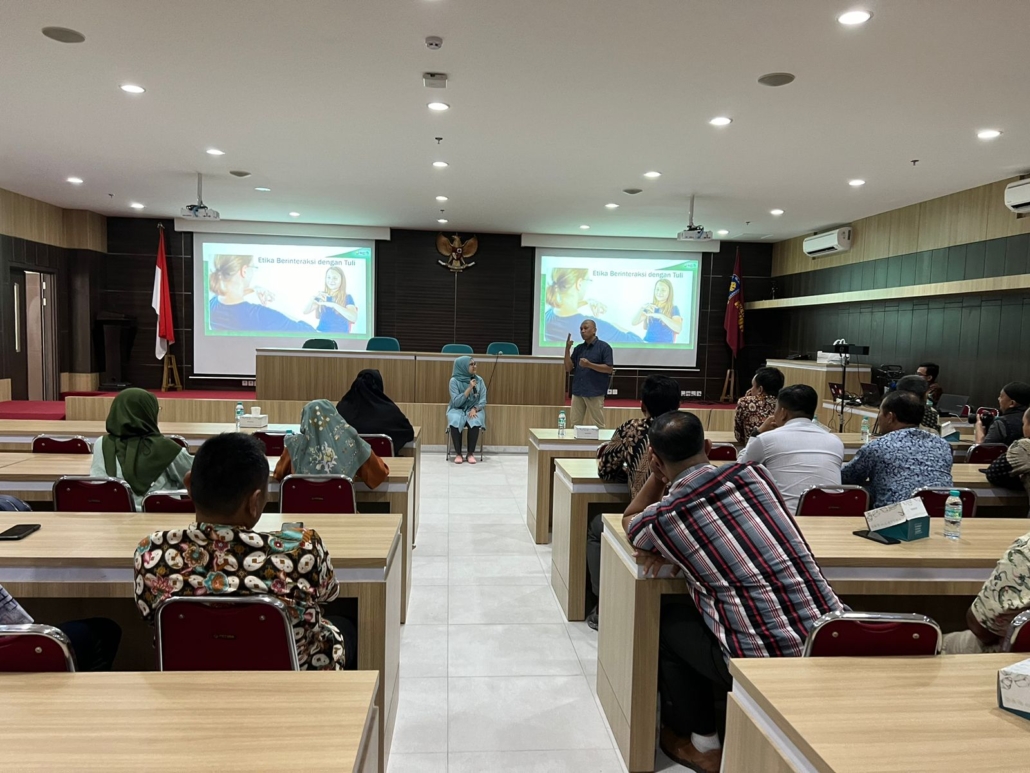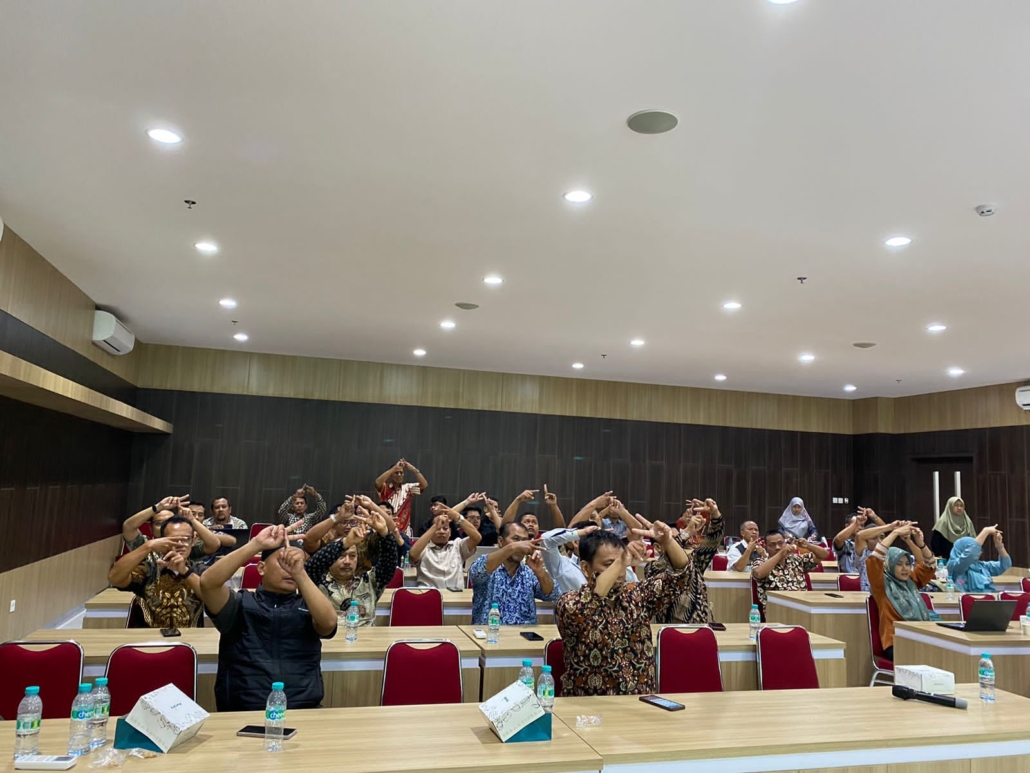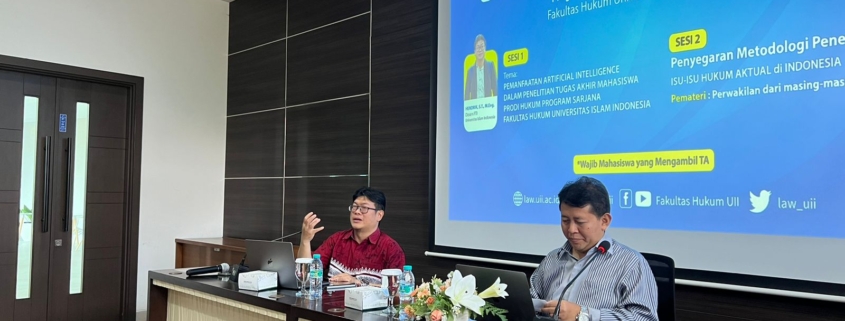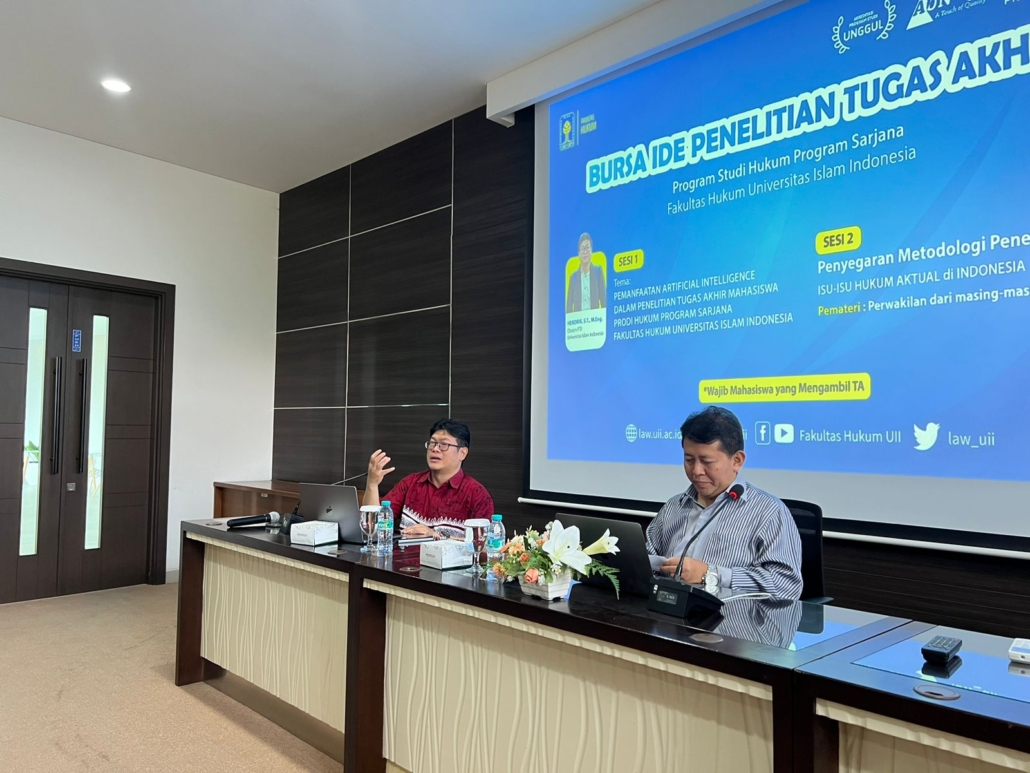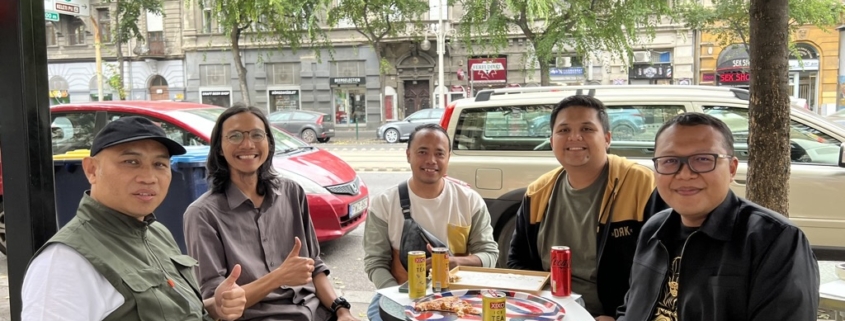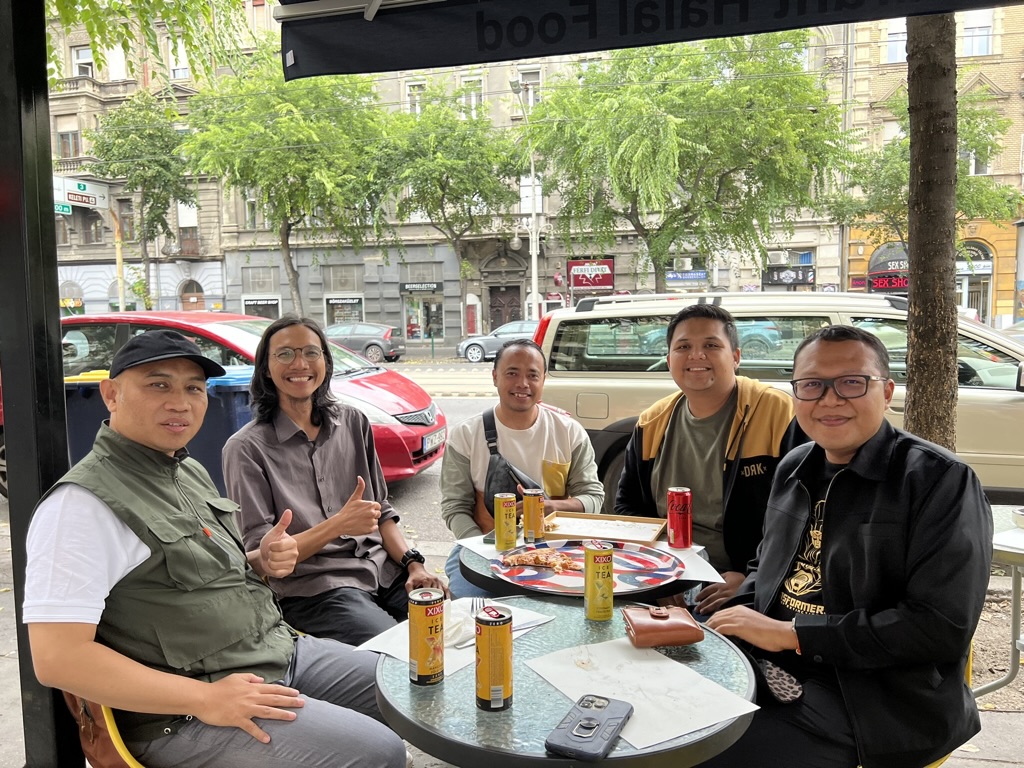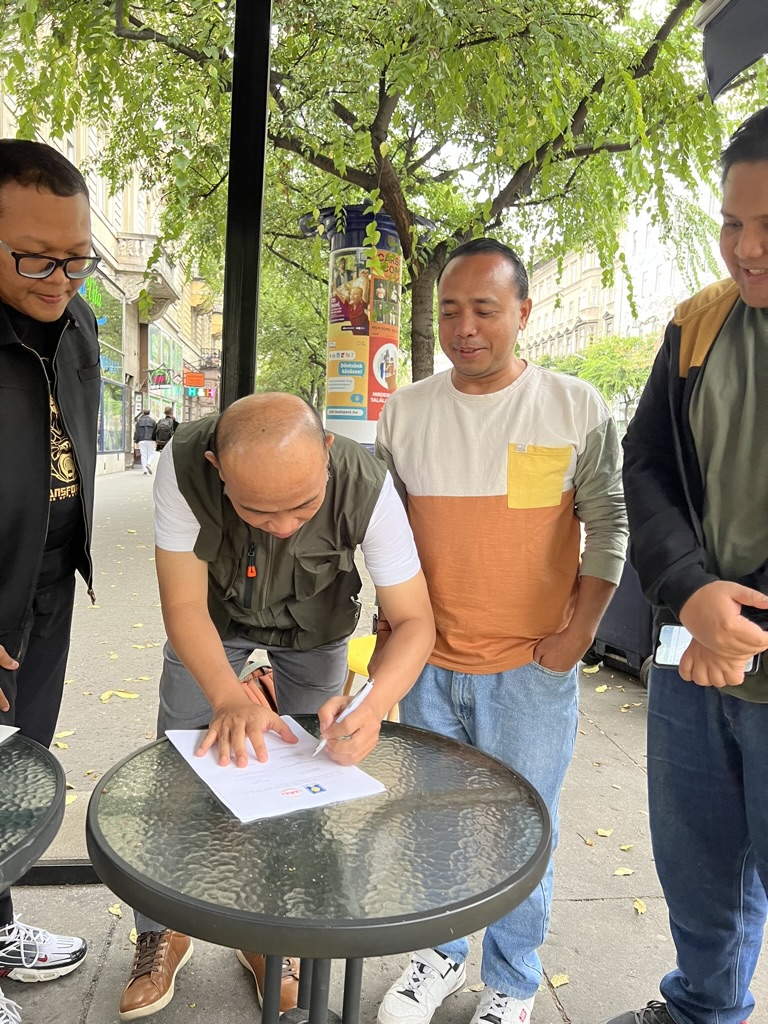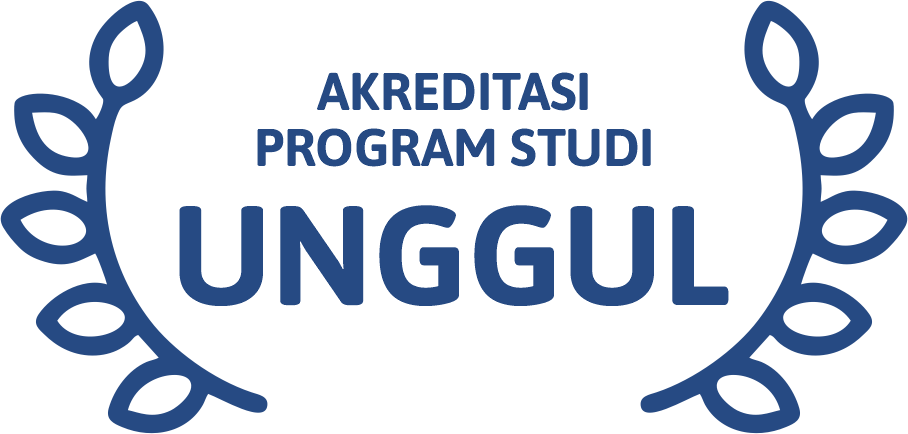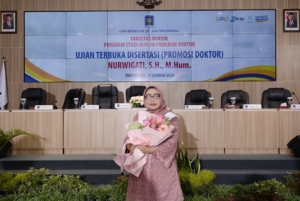
“To realize the General Principles of Good Government, the term ex-criminal corruption must be stated firmly and independently in the decision of the Constitutional Court. Apart from that, the technical regulations also need to be perfected, such as KPU Regulation Number 10 of 2003 concerning disclosing the identity of ex-corruption convicts and the Election Law concerning the prohibition of money politics in terms of time, object, and criminal sanctions.”
[KALIURANG]; The Doctoral Study Program of Law, Faculty of Law, Universitas Islam Indonesia, held the public defense examination in the Auditorium Room of the UII Faculty of Law on (27/01). Promovenda, Nurwigati, S.H., M.Hum succeeded in obtaining a doctorate by defending his dissertation entitled “Reconstruction of the Decision of the Constitutional Court of the Republic of Indonesia Regarding the Political Rights of Ex-Corruption Convicts in the Legislative and Executive General Elections.”
Nurwigati’s dissertation aims to describe and analyze the dynamics of statutory regulations and Constitutional Court (MK) decisions in limiting the political rights of ex-corruption convicts as a requirement to take part in legislative and executive elections according to the aspects of democracy and human rights and justice according to the Pancasila law and Islamic values. It is hoped that the output of this research can be a construction of the Constitutional Court’s decisions and construction of technical regulations relating to legislative and executive elections. So that people’s representatives and leaders who can carry out the General Principles of Good Government (AUPB) can be born.
On this occasion, the public defense examination session was chaired by the Dean of FH UII, Prof. Dr. Budi Agus Riswandi, S.H., M.Hum., with members consisting of Promoter, Prof. Dr. Achmad Sodiki, S.H., Co-Promoter, Prof. Dr. Ridwan, S.H., M.Hum., Prof. Dr. Muhammad Fauzan, S.H., M.H., Prof. Dr. I Gusti Ayu Ketut Rachmi Handayani, S.H., M.M., Prof. Dr. Ni’matul Huda, S.H., M.Hum., and Dr. Sri Hastuti Puspitasari, S.H., M.H.
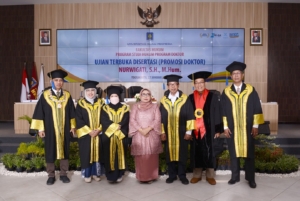
After presenting her dissertation and answering questions the board of examiners asked, Nurwigati was successfully appointed as a Doctor of Law. Dr. Nurwigati, S.H., M.Hum. officially holds the 170th doctoral degree with a structured learning system at PSHPD FH UII.
At the end of the session, the Promoter, Prof. Dr. Achmad Sodiki, S.H., congratulated her on her new doctoral degree and told her to continue studying and practicing her knowledge to be useful to others.

